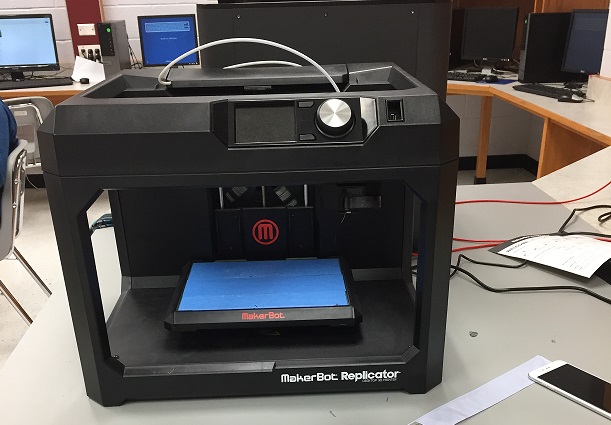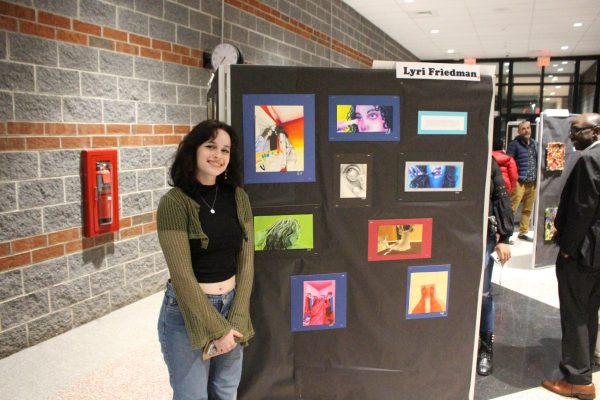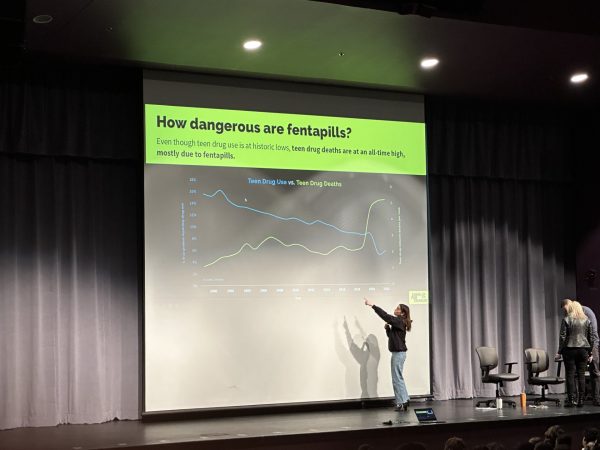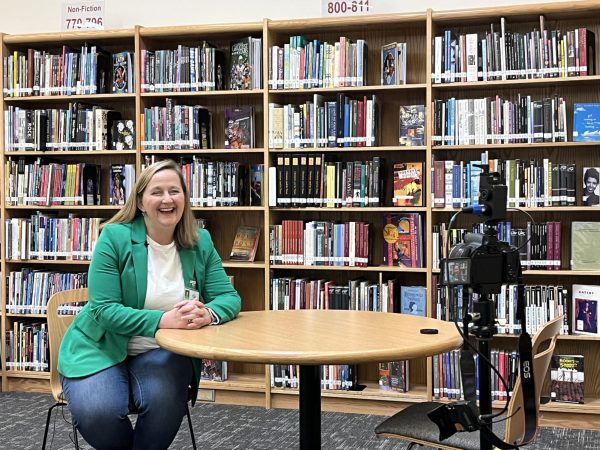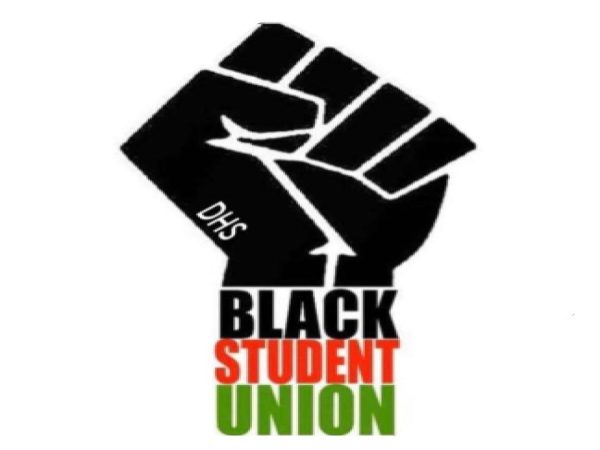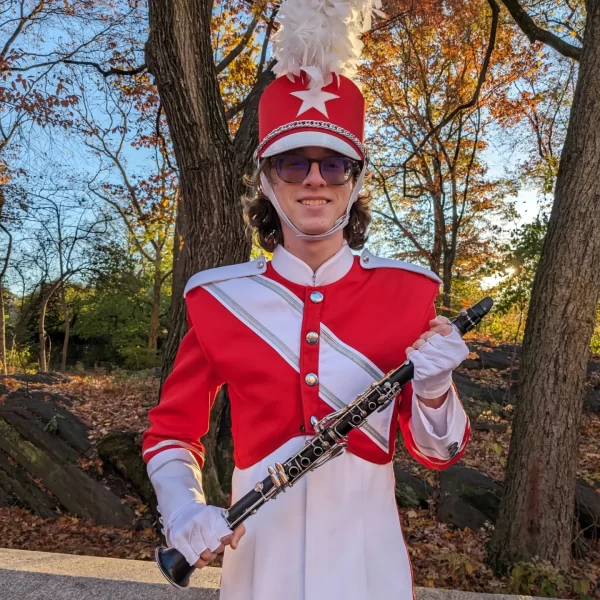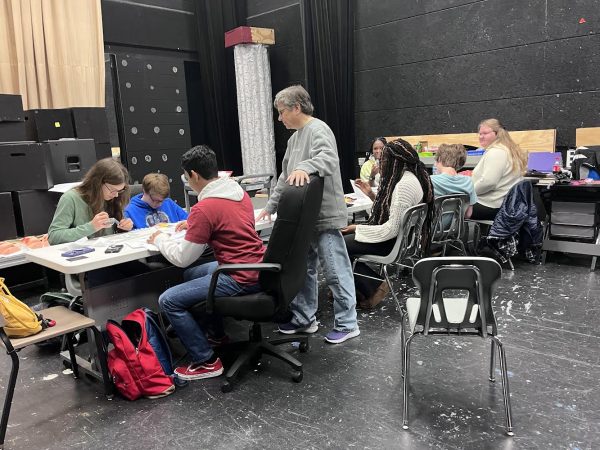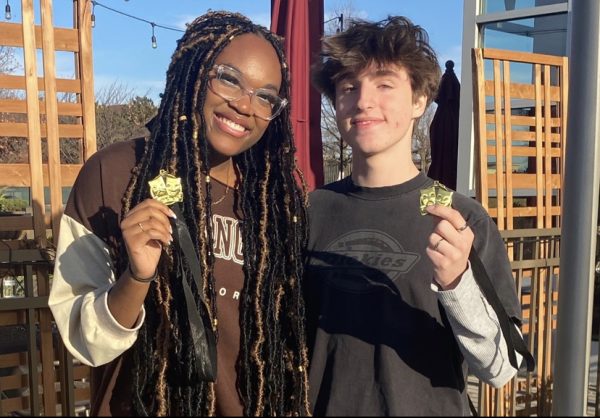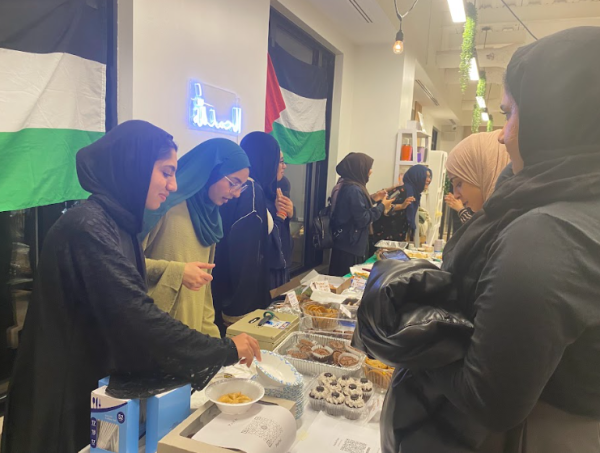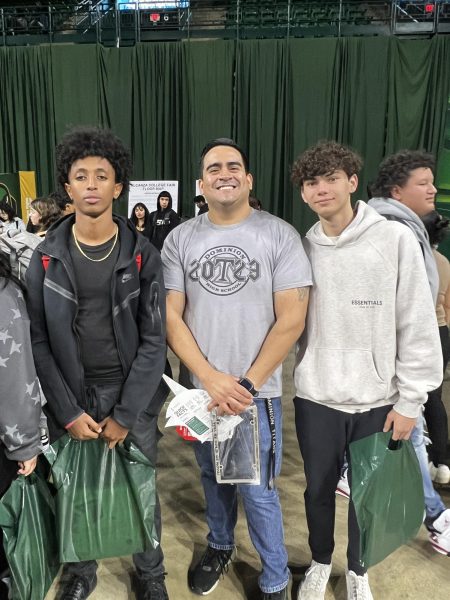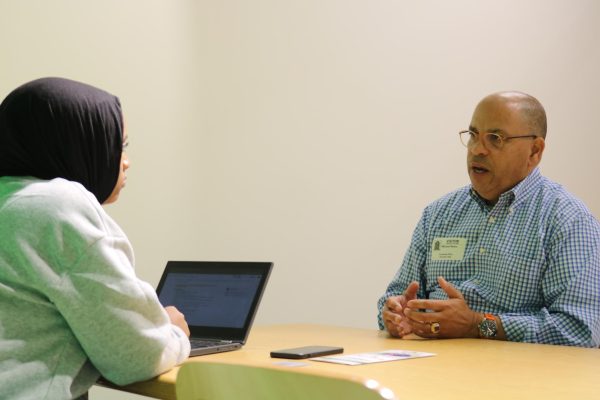Dominion Makerspace Opens Doors
Dominion High School entered the CTE Makeover Challenge, provided by the U.S. Department of Education, this past April for a prize of $20,000.00 and access to a sponsor prize pool, worth $375,000 and more, in the hope of building a makerspace. Ultimately, Dominion was one of ten schools to win the CTE Makeover Challenge.
Before creating the makerspace, Josh Ajima, a technology resource teacher at Dominion High School since its opening in 2003, attended an intensive six-week boot camp that finalized floor plans, explored possible makerspace topics, and explained how to create a budget for the space as well as how to engage the community in its projects.
“The prize money has gone to a vinyl cutter, heat press, 2 CNC mills, littleBits invention kits, phone/tablet repair station, 3 maker carts with maker totes, hand tools, crafting supplies, vinyl for the vinyl cutters, filament for the 3D printers and much more,” Ajima said.
Hosted in CTE (Career and Technical Education) teacher Terry Baker’s room (L506), makerspace is available 1st, 5th, and 6th blocks. To obtain access to the makerspace, teachers must only sign up to use the space and resources it provides for projects and class assignments. Additionally, students who are interested in the makerspace can attend Makers Club, which meets Thursdays from 4 to 5 pm in the Dominion Makerspace, room L506.
The new makerspace not only serves as a unique and helpful resource to teachers, but also to students, as it allows for hands on learning in the classroom. “Makerspace is for all teachers and students to be able to solve real problems. We need students to invent new things to make the world a better place,” Ajima said.
Perhaps one of the most exciting features of the makerspace is its 3D printers. There are six printers in the makerspace in total, including one that can be transported on a cart. These printers can be used across a spectrum of subjects, including mathematics, AP art, ISR (Independent Science Research), geospatial science, social sciences, etc.
Items made by the 3D printers include a foldable cube design, 3D maps, and prints that aided students in celebrating Hispanic Heritage Month. Furthermore, makerspace allows students to share their 3D prints online through Thingiverse, a repository of 3D printable designs made possible by an active maker community, which fits in nicely with Loudoun County’s One to the World project.
Ajima hopes that the makerspace and the resources it provides generate a good opportunity for student exposure to technology and tools. Teaching students how to use technology and ingenuity to create real change, makerspace allows students to use ingenuity, creativity, and intellect to shape the world around them.
To find out more about makerspace visit Ajima’s blog designmaketeach.com.



